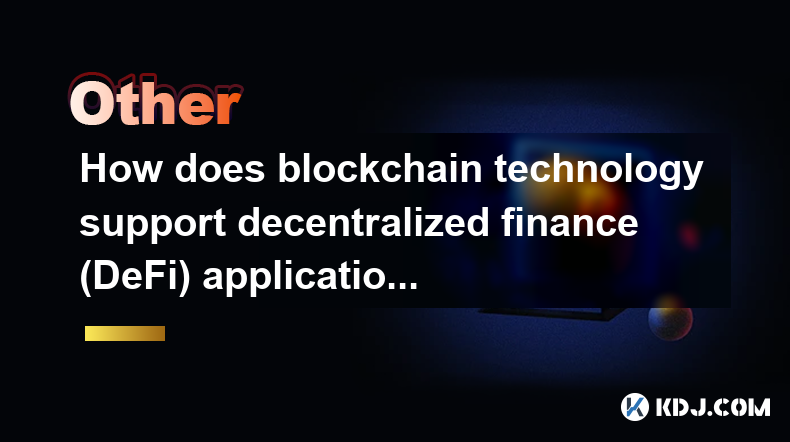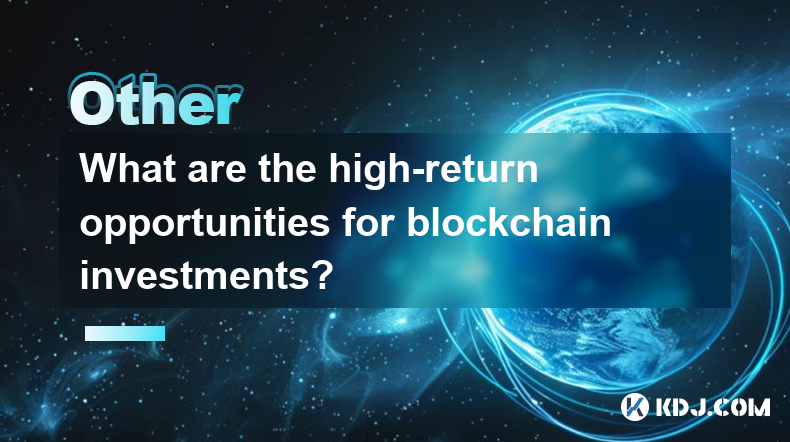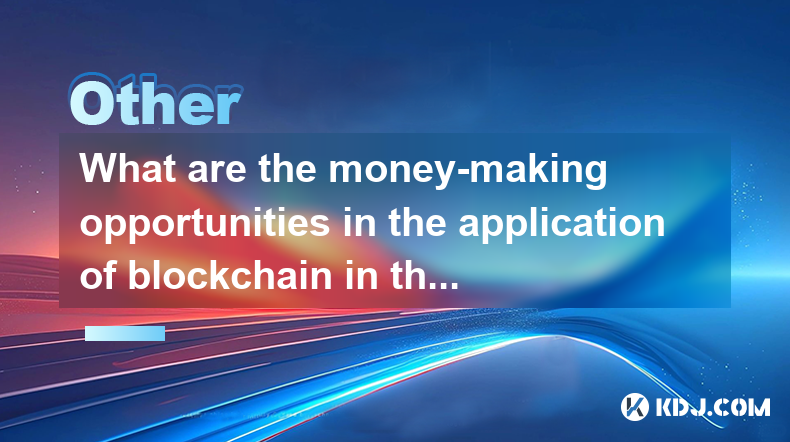-
 Bitcoin
Bitcoin $77,515.7878
-1.70% -
 Ethereum
Ethereum $1,482.0294
-4.71% -
 Tether USDt
Tether USDt $0.9993
-0.02% -
 XRP
XRP $1.8605
-1.92% -
 BNB
BNB $557.5428
0.65% -
 USDC
USDC $0.9999
0.00% -
 Solana
Solana $106.0273
-0.31% -
 TRON
TRON $0.2316
1.34% -
 Dogecoin
Dogecoin $0.1455
-1.79% -
 Cardano
Cardano $0.5752
-0.67% -
 UNUS SED LEO
UNUS SED LEO $8.9885
0.56% -
 Toncoin
Toncoin $3.0072
-0.71% -
 Chainlink
Chainlink $11.1124
-2.38% -
 Stellar
Stellar $0.2264
-1.93% -
 Avalanche
Avalanche $16.3598
-2.96% -
 Sui
Sui $1.9678
-2.51% -
 Hedera
Hedera $0.1506
1.67% -
 Shiba Inu
Shiba Inu $0.0...01079
-5.16% -
 MANTRA
MANTRA $6.1980
-1.37% -
 Polkadot
Polkadot $3.4898
-3.17% -
 Bitcoin Cash
Bitcoin Cash $273.8403
-0.99% -
 Dai
Dai $1.0001
0.01% -
 Litecoin
Litecoin $69.4915
-2.01% -
 Ethena USDe
Ethena USDe $0.9987
-0.01% -
 Bitget Token
Bitget Token $4.0390
-0.91% -
 Pi
Pi $0.5676
-3.21% -
 Hyperliquid
Hyperliquid $11.2615
1.74% -
 Monero
Monero $197.9224
-1.54% -
 Uniswap
Uniswap $4.9780
-2.59% -
 OKB
OKB $49.8015
-2.53%
How does blockchain technology support decentralized finance (DeFi) applications?
Blockchain's immutable ledger, smart contracts, and decentralized nature foster trust and efficiency in DeFi, enabling transparent, auditable transactions and resilient, censorship-resistant applications.
Mar 01, 2025 at 07:12 am

How Does Blockchain Technology Support Decentralized Finance (DeFi) Applications?
Key Points:
- Immutability and Transparency: Blockchain's immutable ledger ensures transparent and auditable transactions, eliminating the need for intermediaries and fostering trust in DeFi applications.
- Smart Contracts: Self-executing contracts automate processes, enabling DeFi applications to operate without human intervention and reducing reliance on centralized authorities.
- Decentralization: Blockchain's distributed nature prevents single points of failure, making DeFi applications more resilient and resistant to censorship or manipulation.
- Tokenization: Blockchain facilitates the creation and management of digital assets, enabling the representation of various financial instruments on a decentralized platform.
- Interoperability: Emerging solutions aim to enhance communication and asset transfer between different blockchains, expanding DeFi's reach and utility.
How Blockchain Technology Supports Decentralized Finance (DeFi) Applications:
- Immutability and Transparency:
Blockchain technology underpins DeFi's core tenets by offering an immutable and transparent ledger. This characteristic is fundamentally different from traditional finance, where transactions are recorded in centralized databases controlled by institutions. In DeFi, every transaction is recorded on a distributed, public ledger. This means that once a transaction is added to the blockchain, it cannot be altered or deleted. This immutability fosters trust among participants, as all transactions are permanently recorded and verifiable by anyone. The transparency aspect ensures that all transactions are publicly viewable (depending on the blockchain's privacy settings), allowing for complete auditability. This level of transparency contrasts sharply with traditional financial systems, where the details of transactions often remain opaque to the public. Consider a loan application in a traditional banking system; the processing is often opaque to the borrower, and they rely on the bank's integrity. In a DeFi lending protocol, the entire process, from loan application to repayment, is recorded on the blockchain, providing the borrower with complete visibility and ensuring accountability. This transparency reduces the risk of fraud and manipulation, a critical element for building trust in a decentralized financial system. The inherent security and verifiability provided by immutability and transparency form the bedrock upon which trustless DeFi applications are built, eliminating the need for intermediaries and fostering a more equitable and efficient financial ecosystem. The absence of a central authority to manipulate or censor transactions also promotes fairness and prevents discriminatory practices. This fundamental shift in trust and accountability is a defining feature of DeFi's potential to revolutionize the financial landscape.
- Smart Contracts:
Smart contracts are self-executing contracts with the terms of the agreement between buyer and seller being directly written into lines of code. These contracts reside on the blockchain and automatically execute when predetermined conditions are met. This automation is a key feature that distinguishes DeFi applications from their traditional counterparts. In traditional finance, contracts require intermediaries like lawyers and notaries to ensure their enforcement. Smart contracts, however, eliminate the need for these intermediaries by automating the execution of the contract's terms. For instance, in a DeFi lending protocol, a smart contract automatically releases funds to a borrower once they meet the specified collateral requirements. Upon loan repayment, the smart contract automatically releases the collateral back to the borrower. This automated process removes the delays and inefficiencies associated with traditional lending processes, improving efficiency and reducing costs. Furthermore, smart contracts can incorporate complex logic and conditions, allowing for the creation of sophisticated financial instruments and applications. This programmability opens up a world of possibilities for innovation in DeFi, enabling the development of novel financial products and services that were previously impossible. The use of smart contracts significantly reduces counterparty risk, as the execution of the contract is governed by code rather than human judgment, minimizing the potential for errors or malicious actions. The deterministic nature of smart contracts, combined with the immutability of the blockchain, makes them a crucial component of DeFi's ability to create trustless and efficient financial systems.
- Decentralization:
The decentralized nature of blockchain technology is arguably the most crucial aspect supporting DeFi applications. Unlike traditional financial systems, which rely on centralized institutions like banks and payment processors, DeFi leverages a distributed network of nodes to maintain the blockchain. This eliminates single points of failure, making DeFi applications significantly more resilient and resistant to censorship or manipulation. If one node in the network fails, the others continue to operate, ensuring the continued functionality of the system. This resilience is crucial for building a robust and reliable financial system. Moreover, the decentralized nature of DeFi prevents any single entity from controlling or manipulating the system. This contrasts sharply with traditional finance, where centralized institutions hold significant power and influence over the financial system. In DeFi, decisions are made collectively by the network participants, promoting a more democratic and equitable system. The lack of centralized control also makes DeFi applications resistant to censorship. Governments or other powerful entities cannot shut down or restrict access to DeFi applications as easily as they can with centralized systems. This censorship resistance is particularly valuable in regions with restrictive financial regulations or political instability. The decentralized architecture, combined with cryptographic security, makes DeFi applications highly secure and resistant to attacks. This enhanced security reduces the risk of fraud and theft, providing a safer environment for users to participate in the DeFi ecosystem. The inherent resilience and censorship resistance of decentralized systems are key factors contributing to the growing appeal and adoption of DeFi applications.
- Tokenization:
Blockchain technology allows for the tokenization of assets, representing real-world or virtual assets as digital tokens on a blockchain. This is crucial for DeFi applications because it enables the creation and management of various financial instruments in a decentralized manner. Traditional financial instruments like stocks, bonds, and real estate can be tokenized, allowing for fractional ownership and increased liquidity. This means that assets that were previously illiquid and difficult to trade can now be easily bought and sold on decentralized exchanges. Tokenization also facilitates the creation of entirely new financial instruments, such as decentralized stablecoins and synthetic assets. These innovative instruments offer new opportunities for investors and businesses, expanding the possibilities of the financial ecosystem. The ability to tokenize assets seamlessly on a blockchain allows for the creation of decentralized exchanges (DEXs) and other DeFi applications that can operate without the need for intermediaries. This eliminates the high fees and delays associated with traditional exchanges, providing a more efficient and cost-effective way to trade assets. Tokenization also enables the creation of decentralized autonomous organizations (DAOs), which are organizations governed by smart contracts and community participation. DAOs represent a new organizational model that is more transparent, efficient, and democratic than traditional organizations. The ability to represent ownership and governance through tokens is a significant advancement that has the potential to reshape the future of business and finance. The flexibility and efficiency provided by tokenization are driving factors in the rapid growth and development of the DeFi ecosystem.
- Interoperability:
While different blockchains operate independently, the concept of interoperability aims to connect them, allowing for seamless communication and asset transfer between different blockchain networks. This is a crucial development for DeFi, as it would enable users to access a wider range of applications and services across different blockchains. Currently, many DeFi applications are confined to a single blockchain, limiting their potential reach and utility. Interoperability would break down these silos, creating a more interconnected and integrated DeFi ecosystem. The lack of interoperability currently presents a significant challenge for DeFi's scalability and usability. Users often need to manage assets across multiple blockchains, increasing complexity and friction. Interoperability would simplify this process, making DeFi more accessible to a wider range of users. Several initiatives are underway to enhance interoperability, including the development of cross-chain bridges and protocols. These solutions aim to facilitate the secure and efficient transfer of assets between different blockchains, ensuring that the integrity and security of the underlying assets are maintained. Achieving seamless interoperability is a significant technical challenge, requiring the coordination of different blockchain developers and communities. However, the potential benefits for DeFi are substantial, as it would unlock new possibilities for innovation and expand the overall utility of the ecosystem. The development of interoperable solutions will be a key driver of future growth and development in the DeFi space.
FAQs:
Q: What are the risks associated with using DeFi applications?
A: While DeFi offers many benefits, it also carries risks. These include smart contract vulnerabilities (bugs in the code can lead to exploits), the volatility of cryptocurrencies (value fluctuations can impact investments), and the lack of regulatory oversight (this can create uncertainty and increase the risk of scams or fraud). Users should thoroughly research any DeFi application before using it and only invest funds they can afford to lose.
Q: How secure are DeFi applications?
A: The security of DeFi applications depends on the security of the underlying blockchain and the smart contracts used. While blockchain technology is generally considered secure, smart contracts can be vulnerable to bugs and exploits. Furthermore, user error, such as using weak passwords or falling for phishing scams, can also compromise security. Robust security practices, regular audits, and careful user behavior are crucial for mitigating risks.
Q: Is DeFi regulated?
A: The regulatory landscape for DeFi is still evolving. Many jurisdictions are still developing frameworks to address the unique challenges posed by DeFi. The lack of clear regulatory guidance can create uncertainty and increase the risk for users and developers. It is important to stay informed about regulatory developments in your region.
Q: How can I get started with DeFi?
A: Getting started with DeFi involves understanding the basics of blockchain technology, cryptocurrencies, and smart contracts. You will need to create a cryptocurrency wallet and acquire some cryptocurrencies to participate in DeFi applications. It's crucial to start with smaller amounts and thoroughly research any DeFi application before investing. Always prioritize security and only use reputable platforms.
Q: What is the future of DeFi?
A: The future of DeFi is likely to involve further innovation in areas like interoperability, scalability, and user experience. Increased regulatory clarity and the development of more user-friendly interfaces will likely drive broader adoption. The potential for DeFi to transform traditional finance is significant, but it also faces challenges related to security, scalability, and regulation.
Disclaimer:info@kdj.com
The information provided is not trading advice. kdj.com does not assume any responsibility for any investments made based on the information provided in this article. Cryptocurrencies are highly volatile and it is highly recommended that you invest with caution after thorough research!
If you believe that the content used on this website infringes your copyright, please contact us immediately (info@kdj.com) and we will delete it promptly.
- Pi Network (PI) Price Prediction for April 8: Will Pi Hit $3 Again?
- 2025-04-09 02:50:12
- $TAIKO listing on Revolut opens up 45 million new users to the first based rollup on Ethereum
- 2025-04-09 02:50:12
- Zcash (ZEC) Reaches a High of $35.69 as a Record Amount of Tokens Move Out of Circulation
- 2025-04-09 02:45:13
- The meme coin space is buzzing once again, and this time, it's not just about dogs, cats, or frogs
- 2025-04-09 02:45:13
- Celo Transitions from a Layer-1 Chain to an Ethereum Layer-2 Protocol
- 2025-04-09 02:40:13
- Binance Has Frozen $38 Million from a Market Maker Who Sold 66 Million Movement (MOVE) Tokens
- 2025-04-09 02:40:13
Related knowledge

Is the ranking of Chinese blockchain apps real and reliable?
Apr 04,2025 at 09:01pm
The ranking of Chinese blockchain apps has become a topic of interest for many in the cryptocurrency community, as it provides insights into the popularity and adoption of blockchain technology within China. However, the reliability and authenticity of these rankings are often questioned. This article aims to delve into the factors that influence these ...

What are the future development trends of blockchain game development?
Apr 03,2025 at 05:00am
Blockchain technology has revolutionized various industries, and gaming is no exception. As we look to the future, several trends are set to shape the development of blockchain games. These trends not only promise to enhance the gaming experience but also to integrate blockchain technology more seamlessly into the gaming ecosystem. Let's explore these t...

What are the high-return opportunities for blockchain investments?
Apr 05,2025 at 02:35pm
Blockchain technology has revolutionized the financial world, offering numerous high-return investment opportunities. These opportunities span various sectors within the cryptocurrency ecosystem, including cryptocurrencies, decentralized finance (DeFi), non-fungible tokens (NFTs), and blockchain startups. Each of these areas presents unique risks and re...

What are the maintenance costs of blockchain system development?
Apr 03,2025 at 06:07pm
The maintenance costs of blockchain system development are multifaceted and depend on various factors. These costs can include technical maintenance, security updates, infrastructure expenses, and personnel costs. Understanding these elements is crucial for anyone planning to develop or maintain a blockchain system. Technical MaintenanceTechnical mainte...

What are the money-making models of blockchain games?
Apr 04,2025 at 02:00pm
Blockchain games have emerged as a revolutionary way for players to earn real money while enjoying their favorite pastime. These games leverage the power of blockchain technology to create unique money-making models that benefit both the players and the developers. In this article, we will explore the various money-making models of blockchain games and ...

What are the money-making opportunities in the application of blockchain in the field of Internet of Things?
Apr 05,2025 at 10:35pm
The integration of blockchain technology with the Internet of Things (IoT) presents numerous money-making opportunities. Blockchain, with its decentralized and secure nature, can revolutionize how IoT devices interact, manage data, and conduct transactions. This article will explore various avenues where entrepreneurs, developers, and investors can capi...

Is the ranking of Chinese blockchain apps real and reliable?
Apr 04,2025 at 09:01pm
The ranking of Chinese blockchain apps has become a topic of interest for many in the cryptocurrency community, as it provides insights into the popularity and adoption of blockchain technology within China. However, the reliability and authenticity of these rankings are often questioned. This article aims to delve into the factors that influence these ...

What are the future development trends of blockchain game development?
Apr 03,2025 at 05:00am
Blockchain technology has revolutionized various industries, and gaming is no exception. As we look to the future, several trends are set to shape the development of blockchain games. These trends not only promise to enhance the gaming experience but also to integrate blockchain technology more seamlessly into the gaming ecosystem. Let's explore these t...

What are the high-return opportunities for blockchain investments?
Apr 05,2025 at 02:35pm
Blockchain technology has revolutionized the financial world, offering numerous high-return investment opportunities. These opportunities span various sectors within the cryptocurrency ecosystem, including cryptocurrencies, decentralized finance (DeFi), non-fungible tokens (NFTs), and blockchain startups. Each of these areas presents unique risks and re...

What are the maintenance costs of blockchain system development?
Apr 03,2025 at 06:07pm
The maintenance costs of blockchain system development are multifaceted and depend on various factors. These costs can include technical maintenance, security updates, infrastructure expenses, and personnel costs. Understanding these elements is crucial for anyone planning to develop or maintain a blockchain system. Technical MaintenanceTechnical mainte...

What are the money-making models of blockchain games?
Apr 04,2025 at 02:00pm
Blockchain games have emerged as a revolutionary way for players to earn real money while enjoying their favorite pastime. These games leverage the power of blockchain technology to create unique money-making models that benefit both the players and the developers. In this article, we will explore the various money-making models of blockchain games and ...

What are the money-making opportunities in the application of blockchain in the field of Internet of Things?
Apr 05,2025 at 10:35pm
The integration of blockchain technology with the Internet of Things (IoT) presents numerous money-making opportunities. Blockchain, with its decentralized and secure nature, can revolutionize how IoT devices interact, manage data, and conduct transactions. This article will explore various avenues where entrepreneurs, developers, and investors can capi...
See all articles






















































































